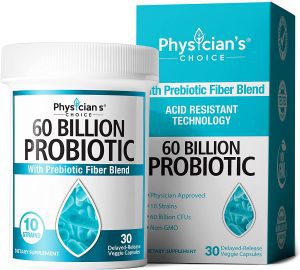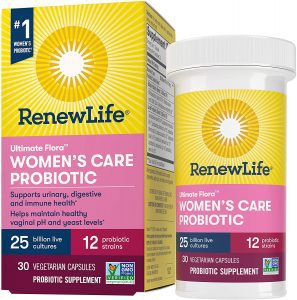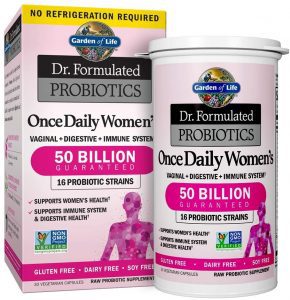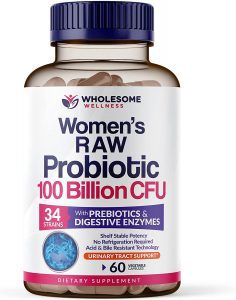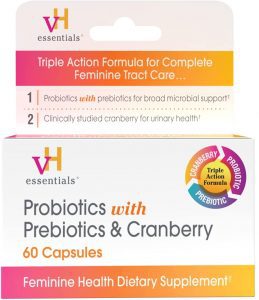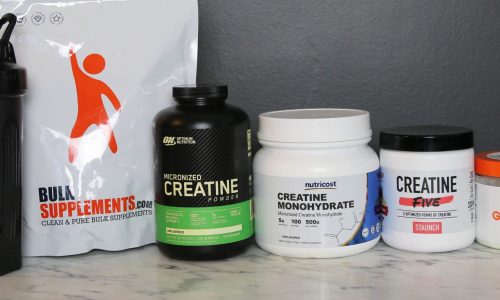The Best Probiotics For Women
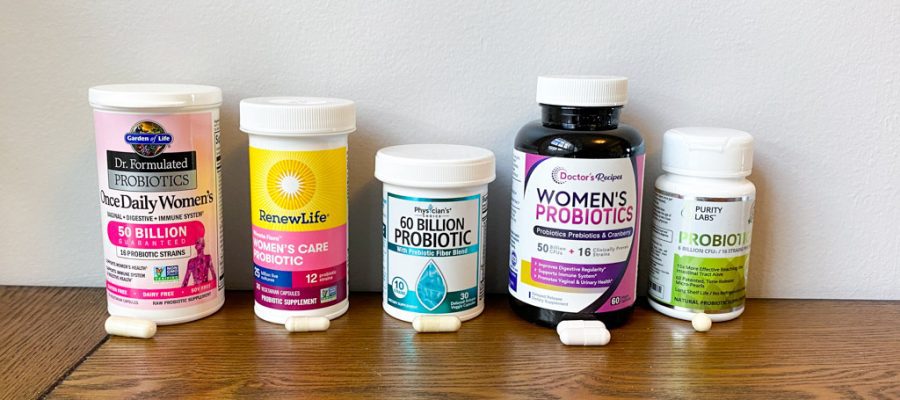
Our Review Process
Don't Waste Your Money is focused on helping you make the best purchasing decision. Our team of experts spends hundreds of hours analyzing, testing, and researching products so you don't have to. Learn more.
Our Picks For The Top Probiotics For Women
- 1. Physician’s Choice Acid-Resistant Fiber-Added Probiotics For Women, 30-Count
- 2. Renew Life 12-Strain Shelf-Stable Probiotics For Women, 30-Count
- 3. Garden Of Life Doctor-Developed Diverse-Strain Probiotics For Women, 30-Count
- 4. Doctor’s Recipes Cranberry & Prebiotic Probiotics For Women, 60-Count
- 5. Wholesome Wellness 34-Strain Gummy Probiotics For Women, 60-Count
- 6. vH essentials Cranberry UT-Health Probiotics For Women, 60-Count
For a blend of probiotics and organic prebiotics that results in optimal gut health, try this quality product. The capsules are shelf-stable, purity-tested and acid-resistant, containing high amounts of 10 different strains of good bacteria.
Complete BlendThese high-quality capsules contain a maximum-strength probiotic and prebiotic blend.
You'll want these shelf-stable probiotics that support vaginal health in addition to gut health and immunity. The probiotics contain billions of CFUS of 12 different bacteria strains. Refrigeration is recommended but not necessary.
For Vaginal HealthGet the most potent probiotics for supporting immune, vaginal and gut health in women.
These supplements are specially formulated to support vaginal health. They are gluten-free, dairy-free, soy-free, and shelf-stable. They contain L. reuteri and L. fermentum for effective vaginal health, along with a prebiotic fiber blend.
Specially FormulatedSpecially formulated for women's optimal health, these probiotics offer a high CFU count.
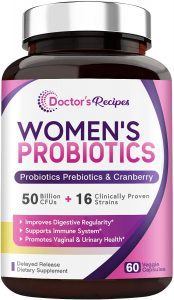
Doctor's Recipes
Cranberry & Prebiotic Probiotics For Women, 60-Count
This women's probiotic is designed to stay intact until it reaches your intestines to ensure extra potency. The capsules are formulated with prebiotics, cranberry and 16 strains of bacteria. The natural, pure product is shelf-stable, too.
Timed DeliveryThis probiotic product for women features timed release of 16 strains for optimal health.
Buying Guide
Did you know that there is an entire ecosystem of bacteria living in your intestinal tract? Your gut microbiota helps with immune health, digestion and many other important bodily functions. In order to be healthy, people require a balance of good and bad bacteria in their bodies. However, sometimes that balance is skewed, leading to health issues. This is where probiotics come in. Probiotics provide additional beneficial bacteria to the gut microbial balance.
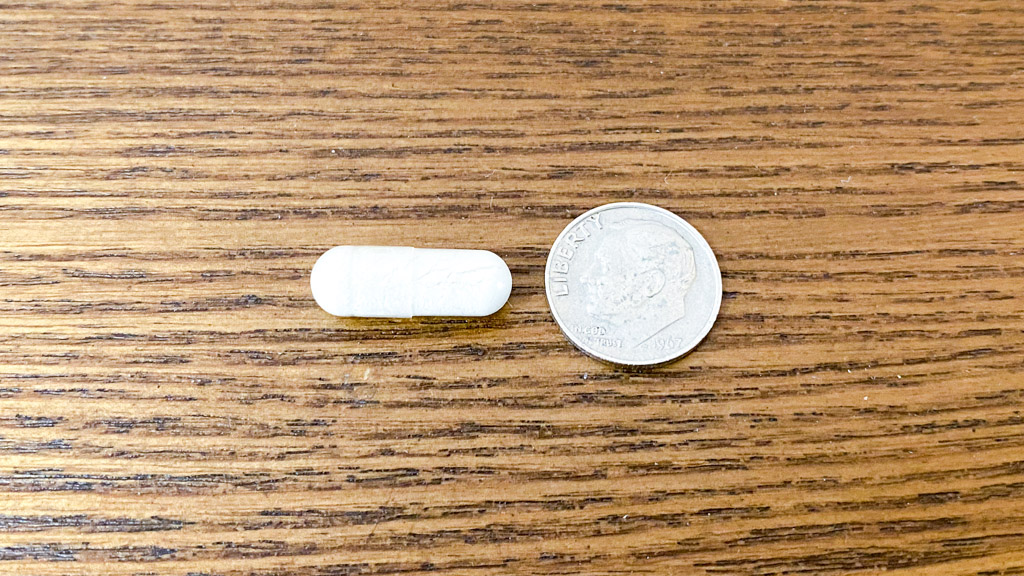
If you are experiencing gastrointestinal problems, it’s likely that probiotic supplements can increase your health. They are especially helpful for those who suffer from irritable bowel syndrome, ulcerative colitis and other conditions. With the right probiotics for your symptoms, you can boost immune health and experience additional benefits.
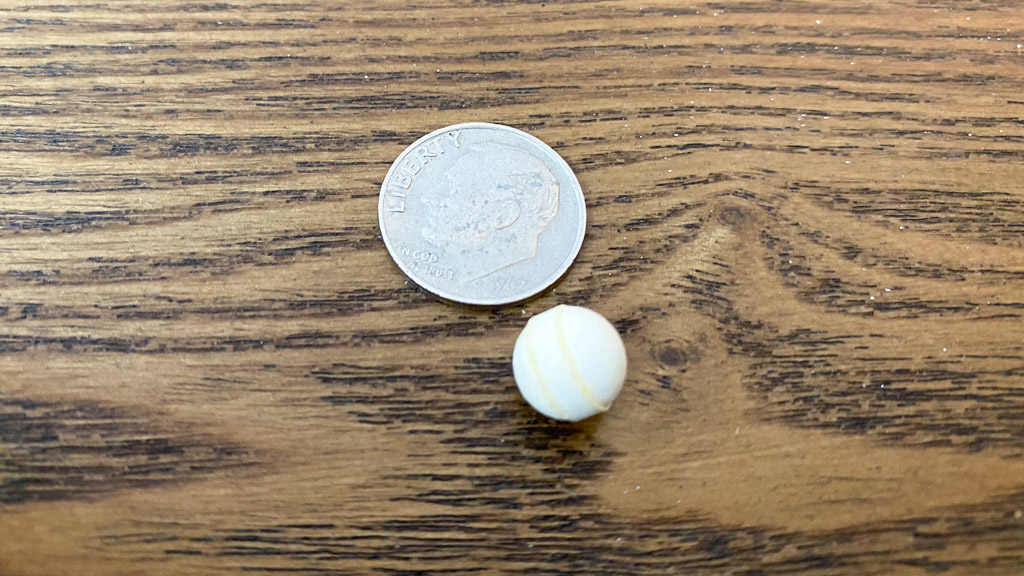
Probiotics may be able to offer unique benefits for women, such as balancing vaginal pH, lowering the risk of yeast infections, enhancing skin health, reducing inflammation and acne, increasing the absorption of nutrients and much more.
Probiotics are considered mostly safe to take during pregnancy, although researchers agree that more studies are needed to confirm this. Such supplements may even have positive effects for both the mother and the baby, such as reducing the risk of preterm deliveries and the incidence of eczema caused by allergies.
When selecting a probiotic for women, it’s important to consider whether you have any health issues like an immune disorder. Some probiotics may have mild side effects like gas, while most will not have any side effects on healthy individuals. However, because probiotics are not regulated by the Food and Drug Administration, some have been found to contain contaminants or to not have the ingredients listed on the label.
In general, it’s best to consult your doctor about the use of probiotics and which ones would be recommended for you.
What to Look For
- There are three types of bacteria names: genus (the first word in its scientific name), species (the second word in its scientific name) and strain (a designation or nickname). When reading probiotic labels, look for all three bacteria names on the label so you can determine specifically which bacteria it contains.
- When it comes to probiotics, quality is key. Probiotics, like vitamins and other supplements, are not regulated by the FDA. This means you have to do your own research to determine whether they are right for you. Opt for brands you know and trust and carefully read labels to understand what is included.
- In order for probiotics to work optimally, you have to take the right dose, which can include multiple billions of colony-forming units (CFUs). This is why it’s best to check with a doctor to determine the correct level for your needs.
- Note that some probiotics need to be stored in the fridge while others can be kept at room temperature. If the probiotic formula is heat-dried, you’ll need to place it in the fridge; if it’s freeze-dried, it goes on the counter. Be sure to read the label and follow instructions for proper storage.
- To help the probiotics work, feed your gut prebiotic foods, which contain a dietary fiber that helps encourage the growth and activity of beneficial microorganisms. These include beans, garlic, onions, green bananas and asparagus.
- Probiotics can begin to work immediately, but to get the effects you want, you have to take them consistently over a long period of time. Some benefits, such as improved skin health, can take up to four weeks to appear.
- Probiotic foods, such as yogurt, kefir and kombucha, are an excellent way to improve your gut health. Sauerkraut, kimchi, tempeh and miso are also good options for improving your gut health.
More to Explore
The concept of friendly bacteria was discovered about a century ago. Russian scientist and Nobel Prize winner Elie Metchnikoff of the Pasteur Institute, who is sometimes called “the father of natural immunity,” was working in Bulgaria and became intrigued by the fact that some Bulgarians lived significantly longer than others. In his study on villagers in the Caucasus Mountains that lived to be over 100 years old, he looked for links between their lifestyle and their age.
Metchnikoff discovered that these villagers drank a fermented yogurt drink every day. The drink contained a probiotic called Lactobacillus bulgaricu, which correlated to increased lifespan and improved health. This research prompted him and others to investigate other types of probiotics. He revealed some of his findings in a 1904 lecture in Paris, launching a worldwide mania for yogurt and sour milk as cures for old age. Doctors even started prescribing sour milk for conditions as wide-ranging as gout and gum disease.
However, it wasn’t until the 1990s that probiotics research grew into a serious field and a multimillion-dollar industry, with the term “microbiome” coming into regular literary use by 2001.

